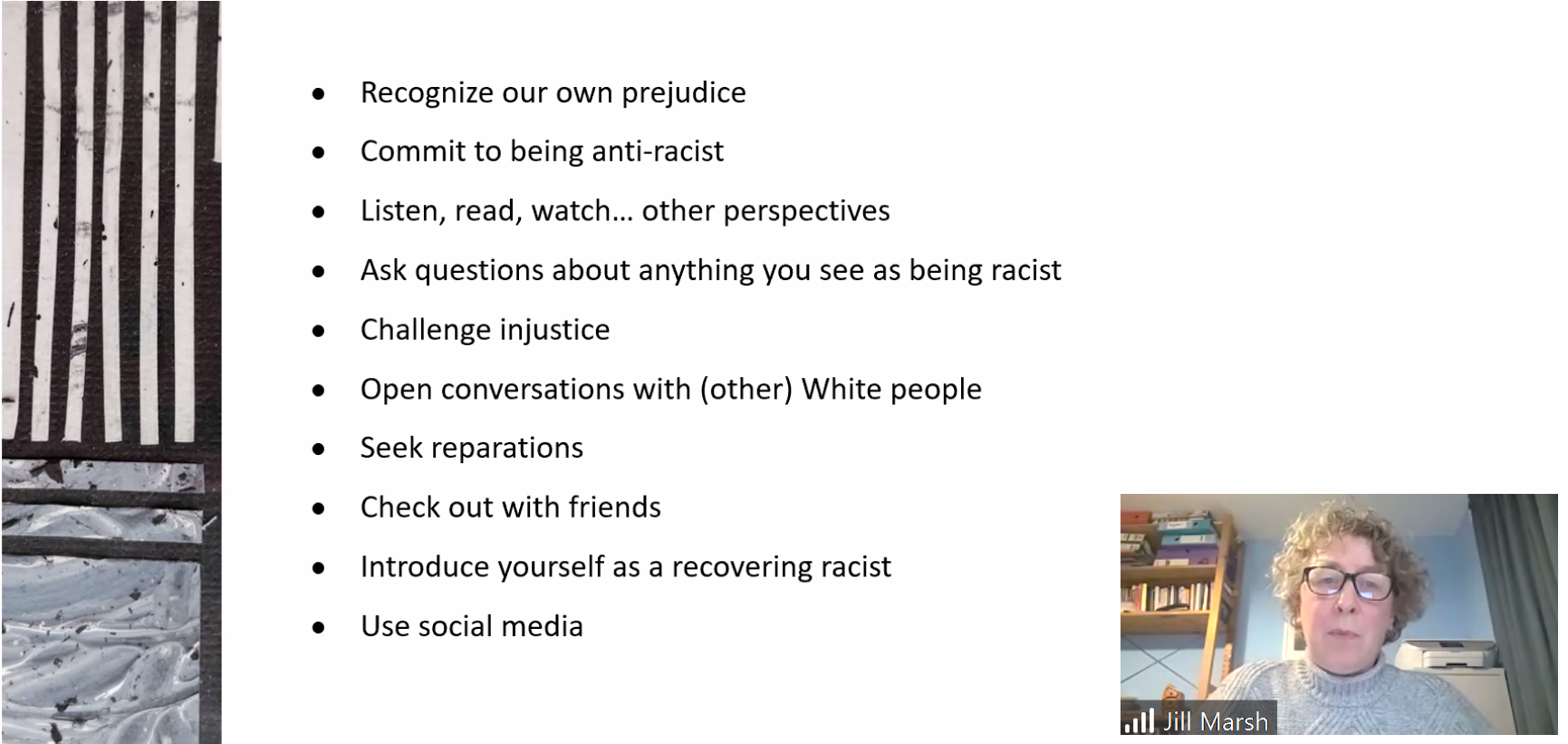Following on from Church and Peace’s September zoom conversation on why racism must be a priority for peace churches, on 8 December 2020 the Britain and Ireland Region organised a further discussion with the audacious title: How to dismantle white privilege.
This was a well-attended event and we were pleased to welcome some of our C&P members from Belgium and Germany, including our Chairperson Antje Heider-Rottwilm who set our discussion in its overall context.
For this discussion, we had called upon Jill Marsh, Mission Enabler for Northampton Methodist Circuit, whose recent PhD dissertation was on the impact of the norming of whiteness in the church. As a practical theologian whose life experience has been taken up with issues around ethnic diversity and racial justice, she was the ideal person to help us to move on in our thinking.
In the course of her research in one particular church, she became interested in the impact of the White people in the church on the inter-cultural congregation. Her list of factors which made a difference includes an intentional decision to celebrate diversity as God-given and a recognition by White people of White privilege and a determination to relinquish that privilege.
In her use of the concept of “havens” – places where people can be themselves, express what they are thinking and feeling and, most importantly, know that they are with people who will understand them – she identified that many White people do not recognise that they too have a need for such havens, because they have all the White privileges including holding the power positions in the church, having their first language being used in worship, the feeling that they could contribute and influence things. In informal conversation, she was told that some feared becoming a Black-majority church and that they would lose control. A comment by one church member that “people from all sorts of countries” didn’t make a difference to her, stayed with her throughout her research because if we believe that we are all made in the image of God, but refuse in our practice and interaction to acknowledge that and refuse to learn from it, this is, in Jill’s view, a sin against the Holy Spirit.
Willie Jennings, a Black American theologian, has posed the very serious question: Can White people be saved? Jill wonders whether, if White people refuse to see the problem, recognise that racism is a sin but continue to act in a way which is sinful, are we then limiting God’s ability to save us, are we refusing salvation?
Speaking to White people, Jill always points out that we need to be honest about our own racial identification. She has become aware that she has only been taught theology from a White perspective. There are things each of us can do, and she gave us a handy check-list to start us off, including steps we can take at local level within our churches and our groups.

We benefited from two break-out discussions in small groups before returning to the plenary. In discussion, we were reminded that everything that can be said about racism can also be said about other diversities such as gender, class, disability; and that in the UK in particular we must beware of attempts to make us look positively on our colonialist and imperialist past, as this would undermine anti-racist work. We were given examples of what is being done in individual churches, e.g. an online study group to read one recommended book, and a series of short videos “Walking in another’s shoes” posted on Facebook by a Methodist church in the Midlands.
It was clear that we have only just begun our journey and before sending us on our way with wishes for a blessed Advent-time, Antje expressed the hope that we would be strong enough to take this concern forward in all its many dimensions.
Download a more detailed report of the meeting here.
Download a resource list assembled by Jill Marsh here.
Report by Barbara Forbes, Board member of Church and Peace
